
In the intricate cosmology of Yoruba spirituality, Ochosi emerges as a skilled and precise Orisha, embodying the qualities of hunting, justice, and swift decision-making. Revered as the patron of hunters and the enforcer of divine order, Ochosi holds a significant place in Yoruba culture, symbolizing both the pursuit of sustenance and the quest for moral equilibrium.

In the expansive realm of Yoruba spirituality, Oya emerges as a formidable and powerful Orisha, embodying the forces of winds, storms, and the transformative energy of change. Revered as the guardian of the cemetery and the ruler of the winds, Oya holds a central place in Yoruba cosmology, symbolizing both the destructive and regenerative aspects of nature.
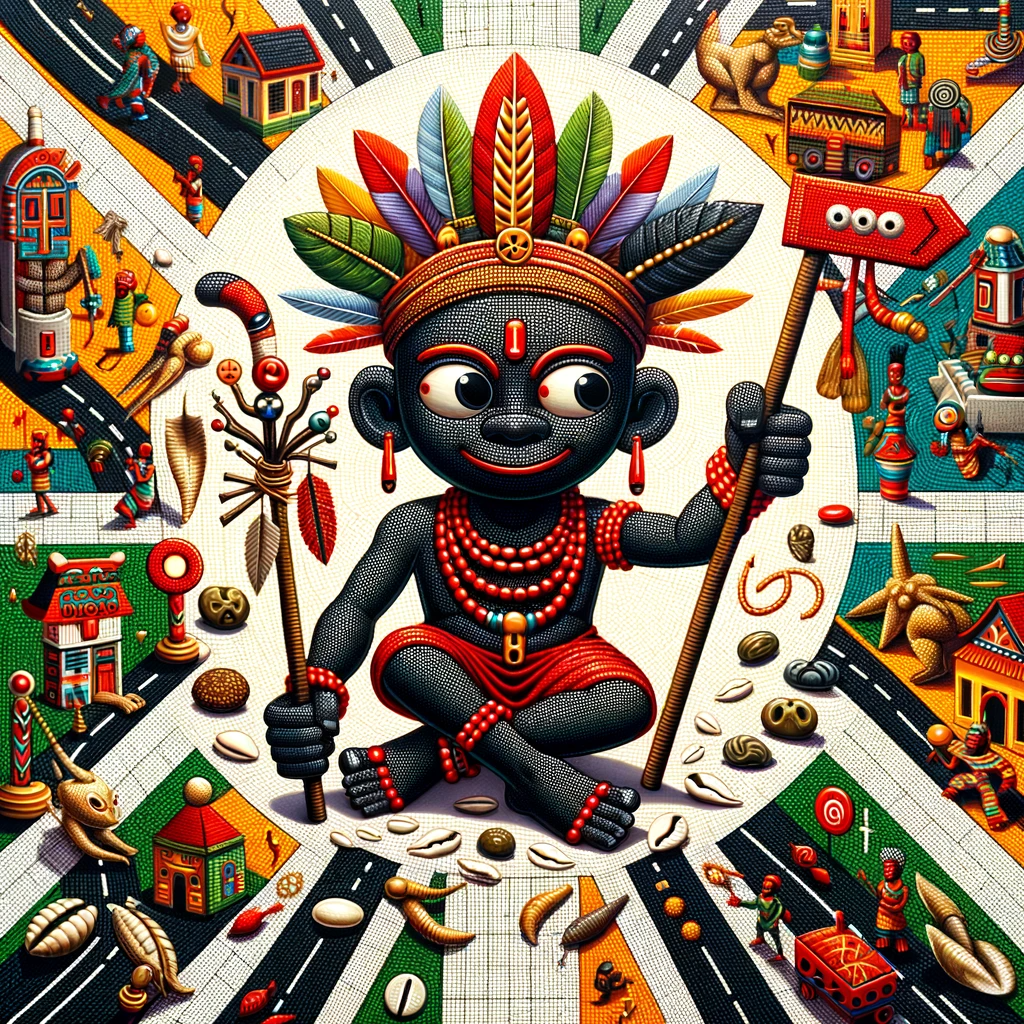
In the intricate tapestry of Yoruba spirituality, Elegua, also known as Eshu, emerges as a dynamic and enigmatic Orisha, embodying the qualities of trickery, communication, and the mysterious interplay of destiny. As the messenger of the gods and the guardian of crossroads, Elegua holds a pivotal role in Yoruba cosmology, influencing the flow of energies and the fate of individuals.
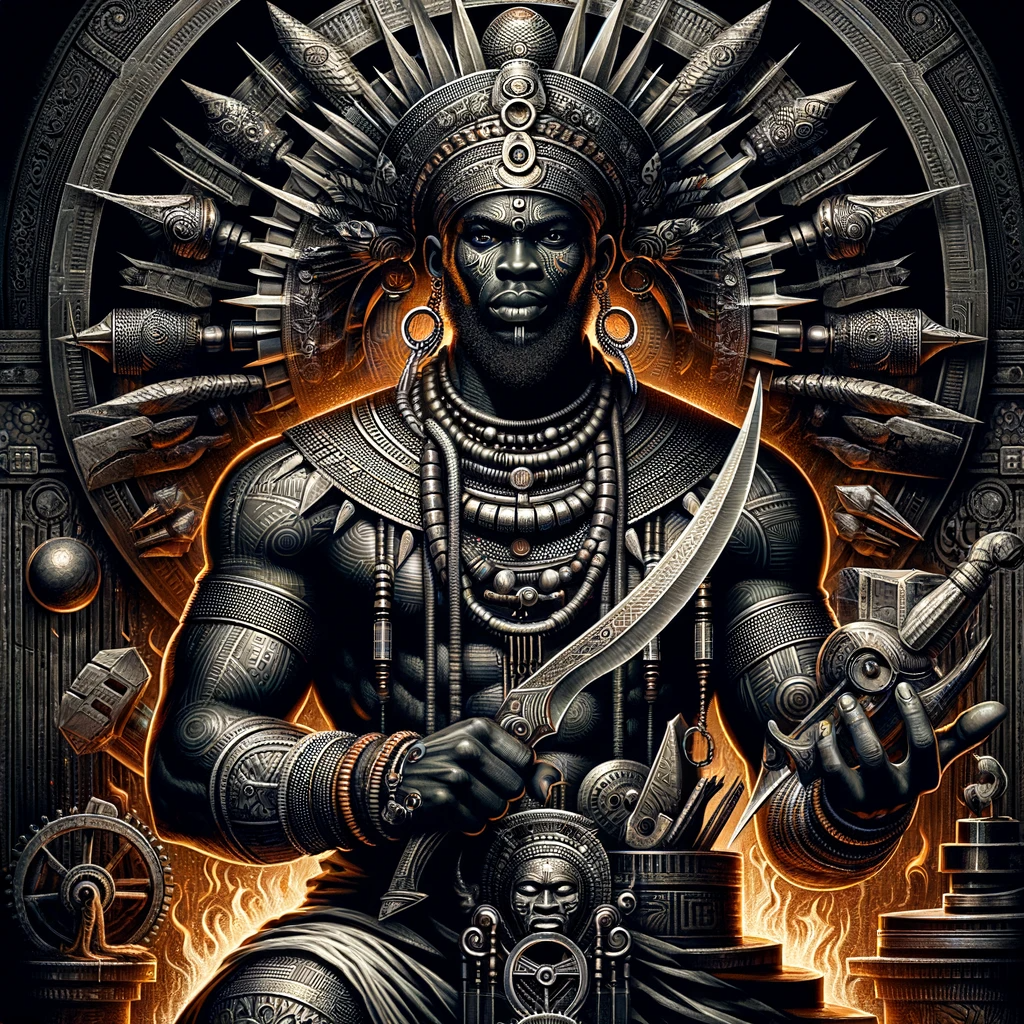
In the intricate pantheon of Yoruba Orishas, Oggun stands as a formidable and powerful deity, embodying the qualities of strength, craftsmanship, and the transformative force of iron. Revered as the patron of war, labor, and technology, Oggun holds a crucial place in Yoruba cosmology, symbolizing both the destructive and constructive aspects of human endeavor.
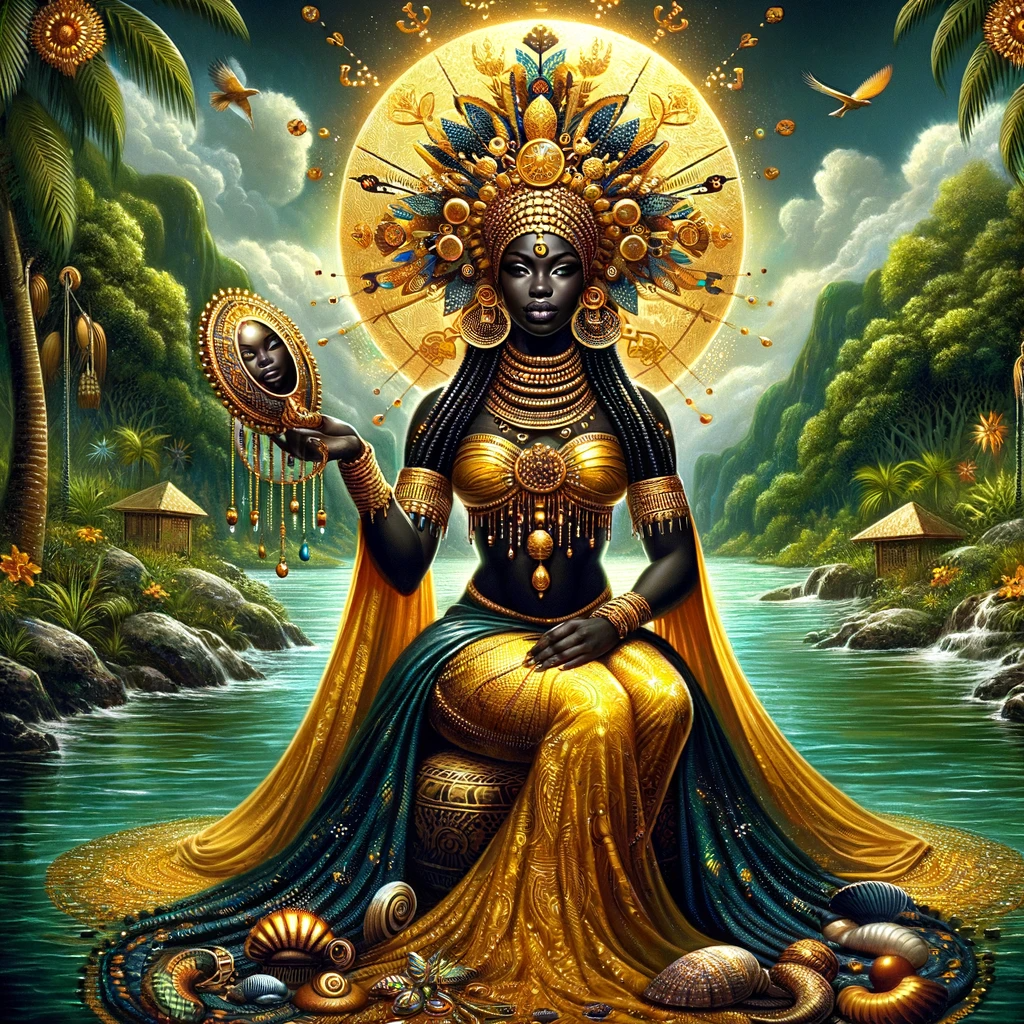
In the rich tapestry of Yoruba spirituality, Oshun emerges as a luminous and enchanting Orisha, embodying the virtues of love, beauty, and fertility. Revered for her grace and compassion, Oshun holds a cherished place in Yoruba cosmology, symbolizing the nurturing essence of the divine feminine and the life-giving qualities of water.
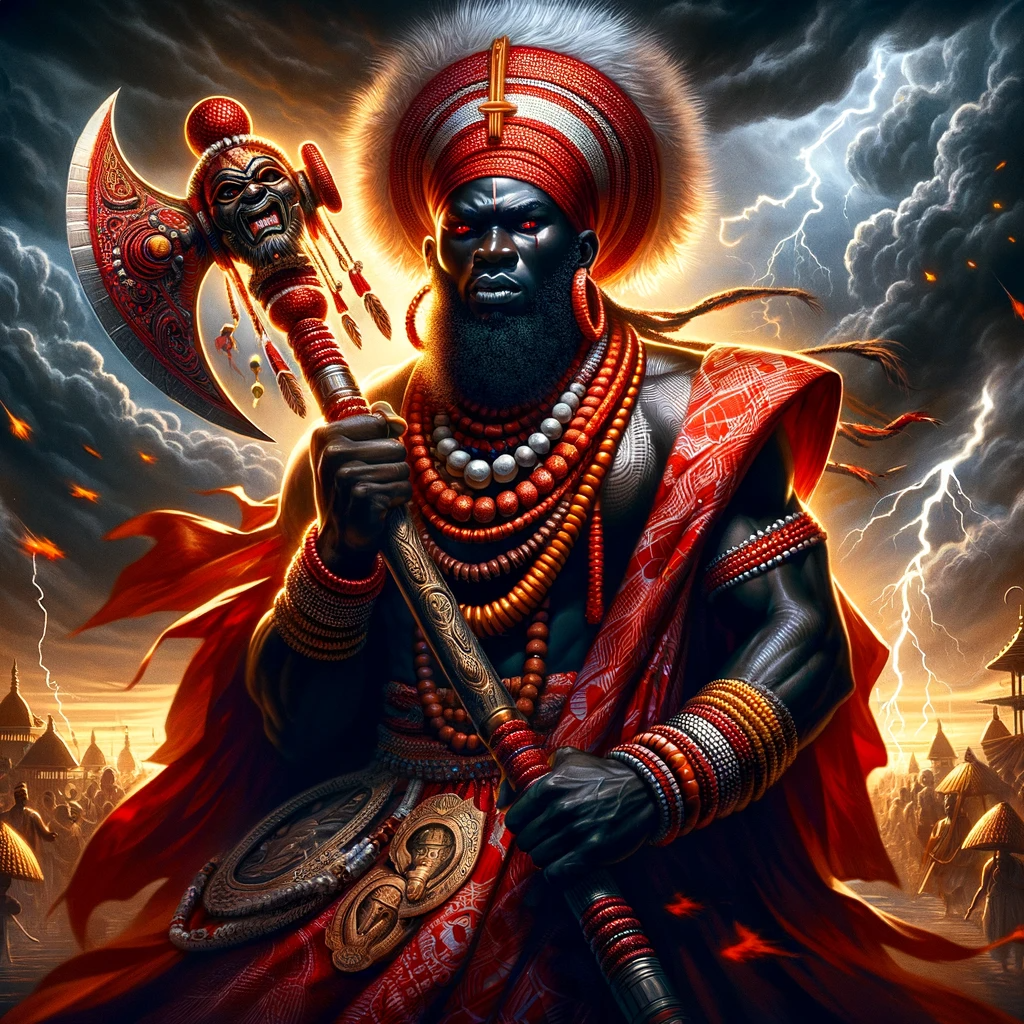
In the vibrant spectrum of Yoruba spirituality, Chango emerges as a dynamic and powerful Orisha associated with thunder, lightning, and the elemental forces that shape the natural world. Revered for his strength, charisma, and influence, Chango holds a prominent place in Yoruba cosmology, symbolizing both the ferocity of nature and the benevolence of divine authority.
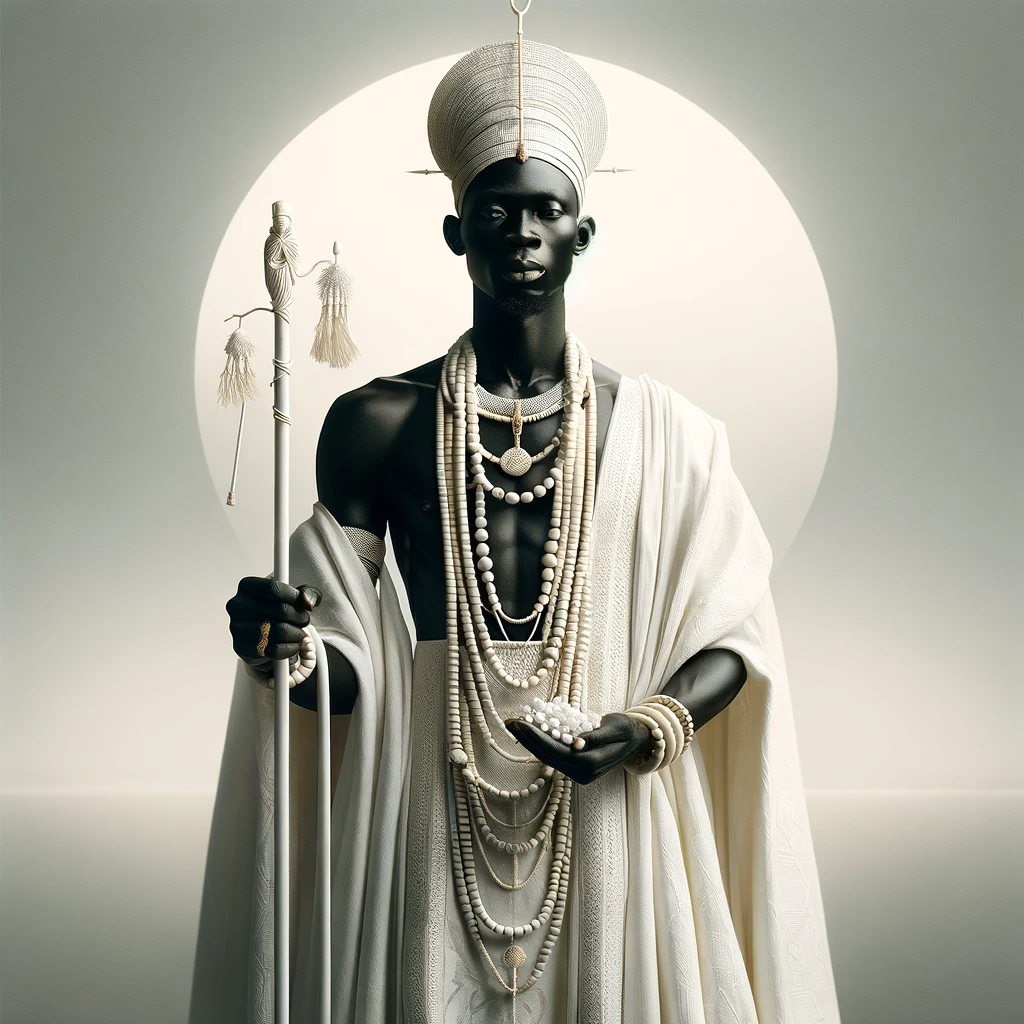
In the intricate tapestry of Yoruba spirituality, Obatala emerges as a revered Orisha embodying wisdom, justice, and the creative force that shapes human destinies. Often regarded as the father of the Orishas, Obatala holds a unique position in Yoruba cosmology, symbolizing purity, fairness, and the embodiment of divine authority.
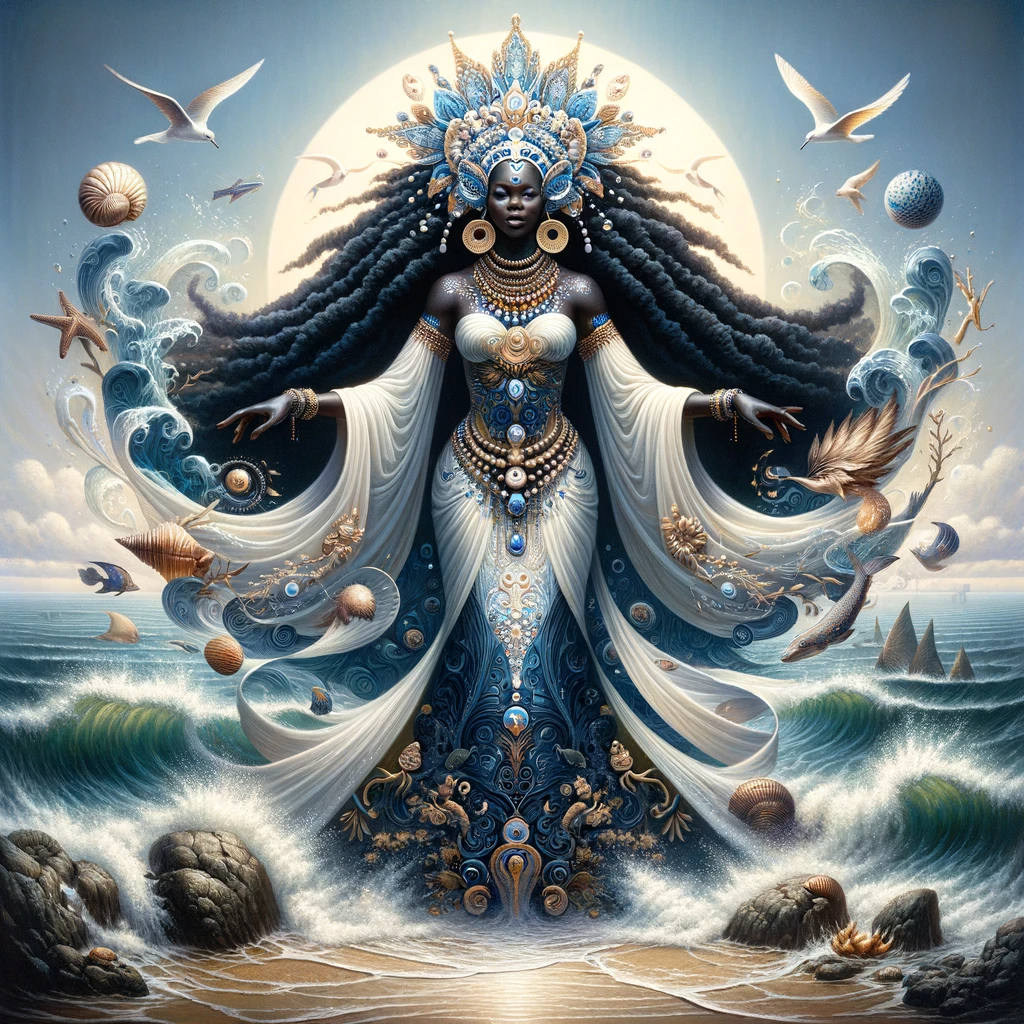
In the pantheon of Yoruba Orishas, Yemaya stands as a revered and maternal figure, embodying the vastness and nurturing qualities of the ocean. Known by various names across different cultures, including Yemoja or Iemanjá, Yemaya is celebrated as the mother of all Orishas and holds a prominent place in Yoruba religious traditions.
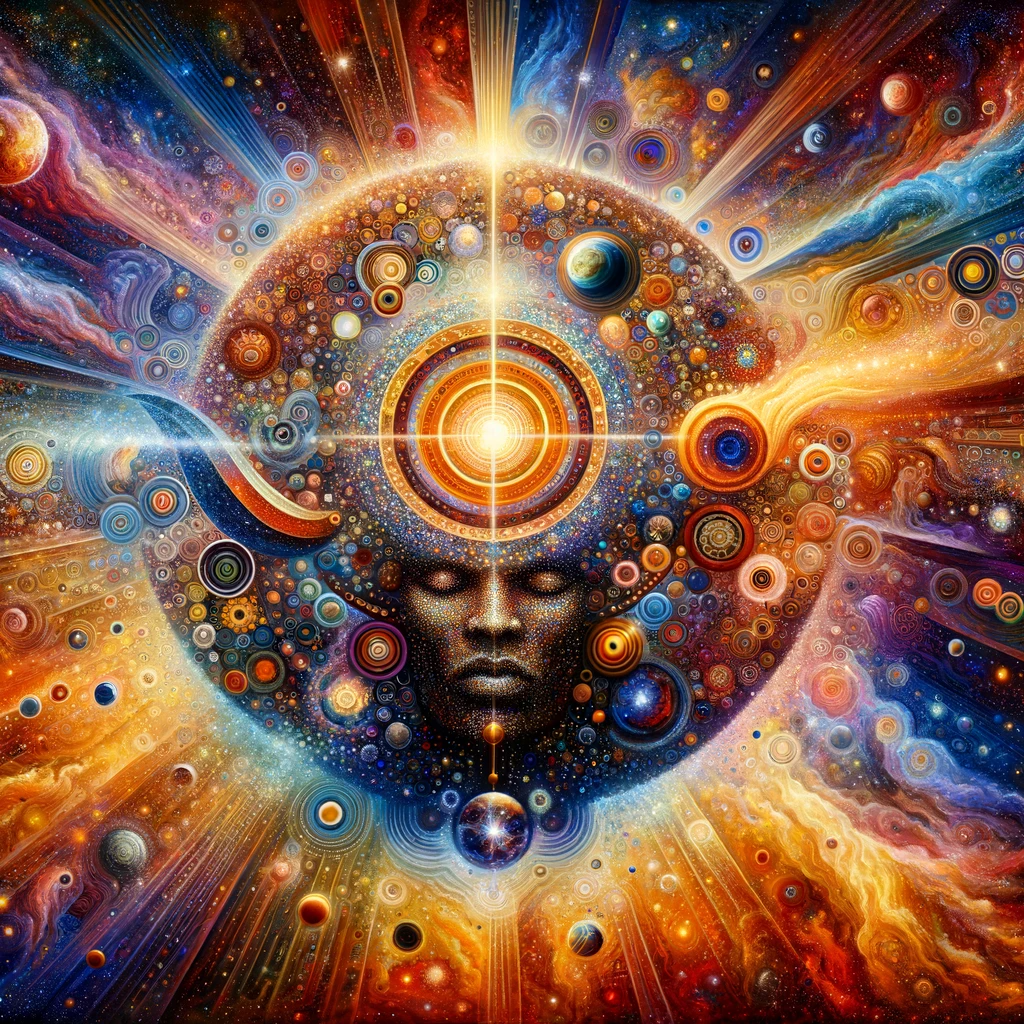
At the pinnacle of Yoruba cosmology stands Olodumare, the revered and omnipotent Supreme Being. In the intricate tapestry of Yoruba spirituality, Olodumare occupies a position of transcendence and divine authority, overseeing the cosmos and the myriad forces that shape existence.

Nestled within the heart of Yoruba culture is Ifá, a profound and intricate spiritual system that serves as a guiding light for millions across Nigeria, Benin, and Togo. Ifá, rooted in ancient Yoruba traditions, is not merely a religious practice but a comprehensive way of life that provides a framework for understanding the cosmos, human existence, and the interconnectedness of all things.










